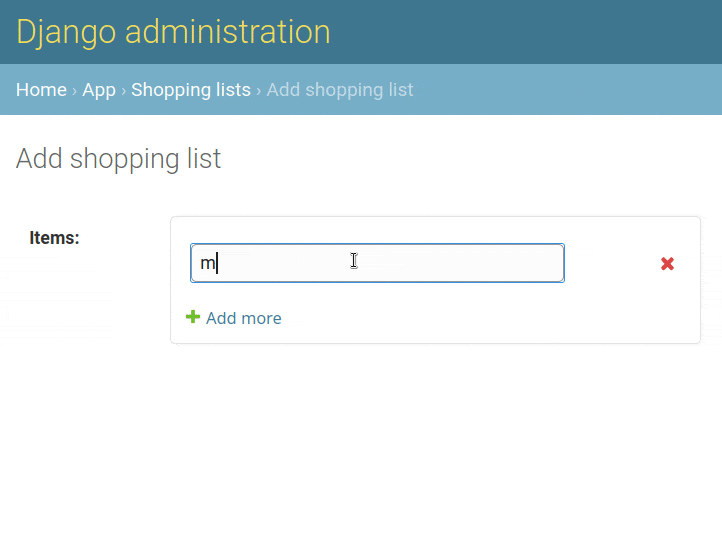A user-friendly JSON editing form for django admin.
Documentation • Playground • PyPI
- File uploads
- Postgres
ArrayField - Many inputs and field types
- UI matches with Django admin's
- Recursion (nesting with self references)
- Validation
Here's a screenshot of items being added to a shopping list (JSON array) dynamically:
Install via pip:
$ pip install django-jsonformEdit your settings.py file:
# settings.py
INSTALLED_APPS = [
# ...
'django_jsonform'
]When upgrading from an older version of this library, please ensure that your browser is loading the latest static JavaScript files that come with this library.
- In the development environment, clear the browser cache.
- In the production environment, you must run the
collectstaticcommand to update the static files.
Quickstart and usage docs can be found at http://django-jsonform.rtfd.io.
- The JavaScript code is written in React and it lives in another repo: https://github.com/bhch/react-json-form.
The JS code lacks proper documentation or comments, so before contributing, maybe open an issue and I can help you out. - For everything else (related to Django or widget's css), contribute directly to this repo.















